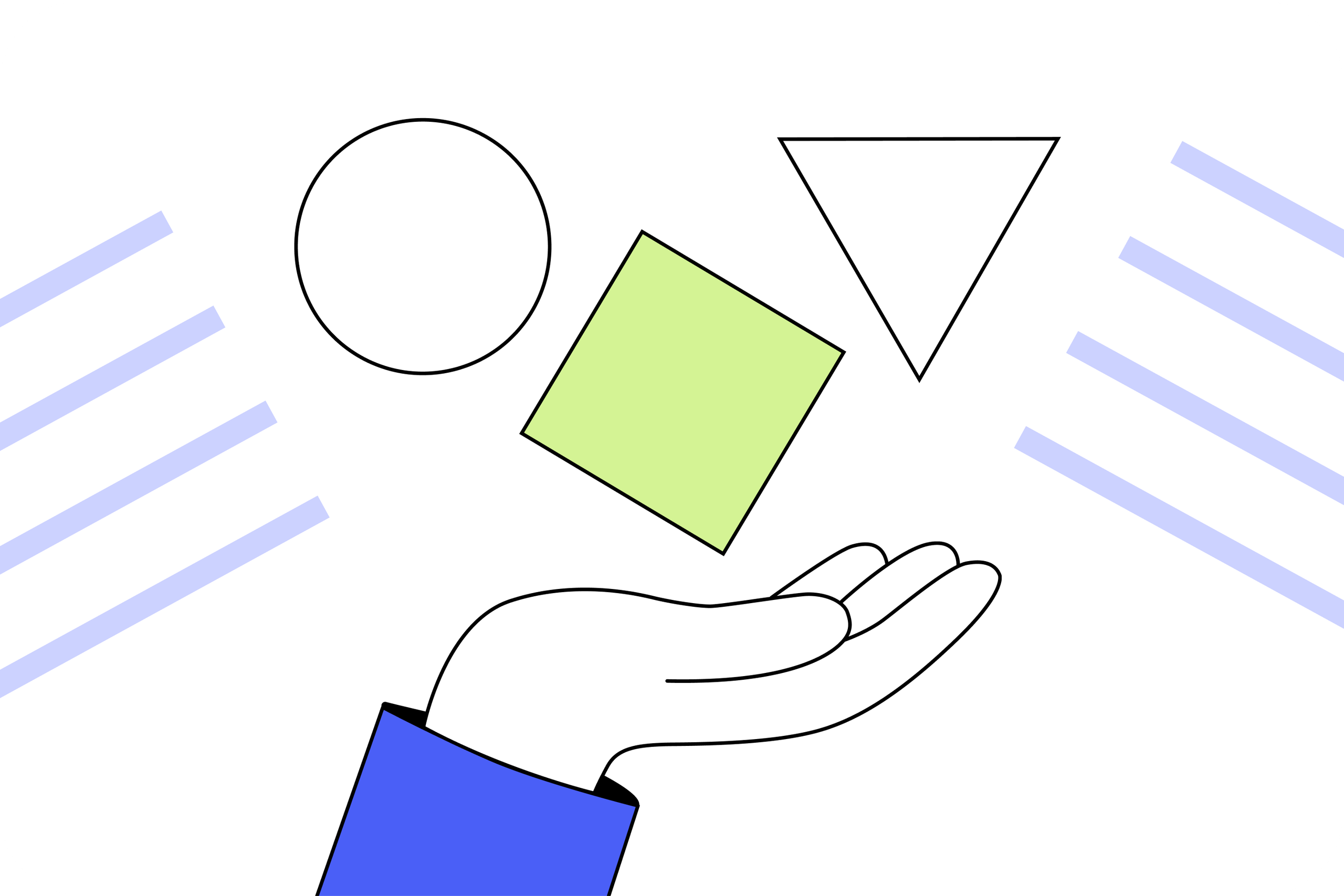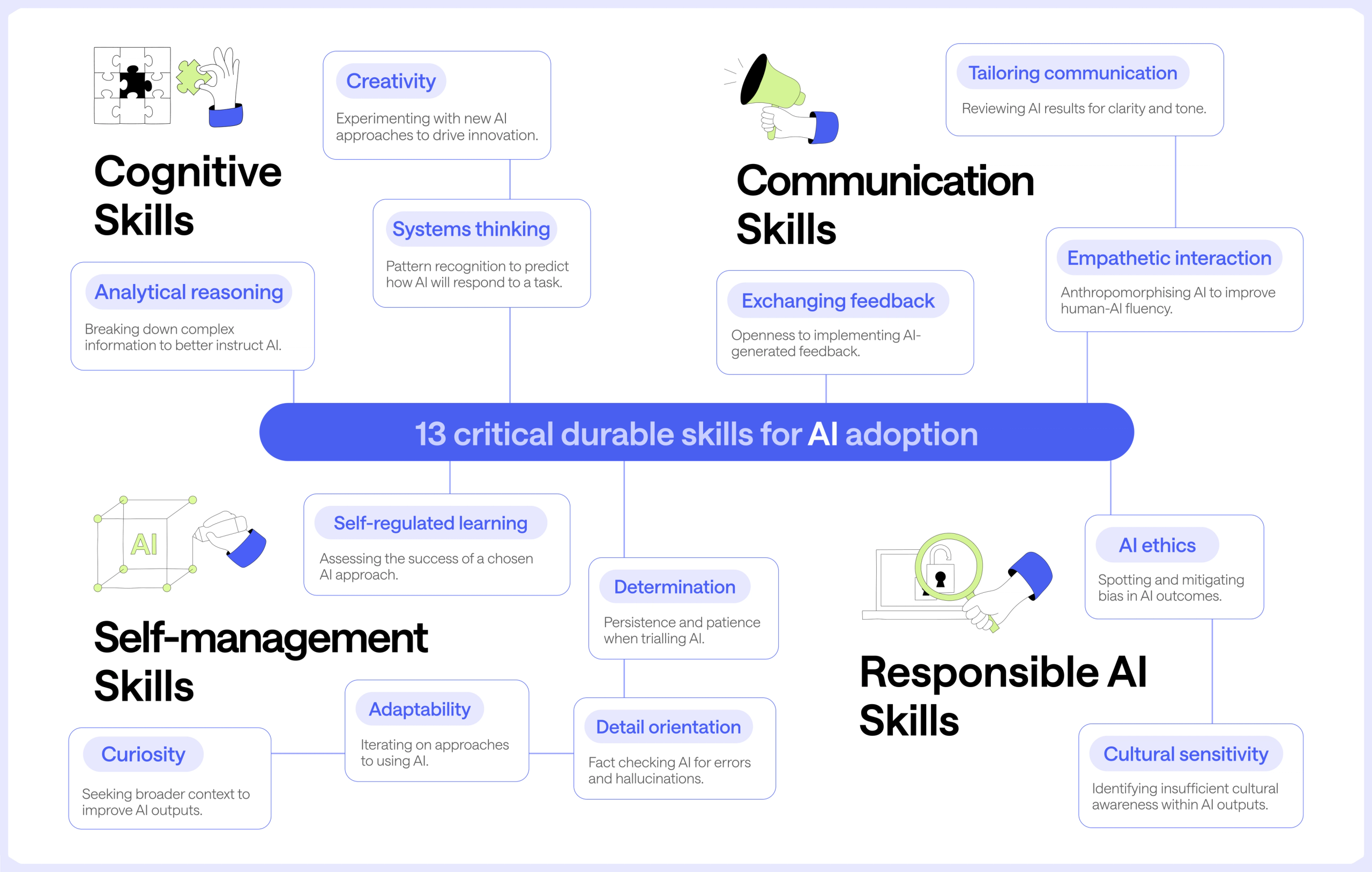Amid reports that GenAI overreliance diminishes critical thinking, Multiverse researchers define 13 durable skills the UK workforce should sharpen to improve AI impact.
As companies invest millions into artificial intelligence, reports from sources such as MIT(opens new window) are beginning to suggest that over-reliance on generative AI can reduce critical thinking. This resulting human skills deficit could itself threaten the effective adoption of AI if not properly addressed, according to findings published today by learning scientists at upskilling platform Multiverse.
The researchers found that creativity, analytical reasoning and systems thinking are among the 13 human skillsets required for the workforce to successfully adopt AI. These sit alongside technical skills such as prompt engineering, AI model evaluation and AI process modelling, and hold the keys to effectively bringing together people and technology to drive value.
The findings were uncovered through qualitative and observational research with AI power-users, alongside expertise derived from upskilling thousands of workers in the use of the technology. The resulting skills framework will support workers and organisations looking to improve their AI maturity – their ability to deliver meaningful impact with AI.
Accenture predicts that AI could contribute £736 billion to UK GDP by 2038(opens new window), but also notes that leading companies are nearly twice as likely to prioritise ‘soft skills’(opens new window). A substantial gap between AI’s potential and the human skills required to use it effectively could therefore represent a major risk to UK productivity and growth.
“Leaders are spending millions on AI tools, but their investment focus isn't going to succeed. They think it's a technology problem when it's really a human and technology problem. Without a deliberate focus on capabilities like analytical reasoning and creativity, as well as culture and behaviours, AI projects will never deliver up to their potential," said Gary Eimerman, Chief Learning Officer at Multiverse. "This framework provides a new model for talent development in the age of AI, which must include human skills as well as technical skills in order to drive tangible business results.”
Focusing on the requirements for effective collaboration between humans and AI, 13 human skills have been identified as critical to support technical AI adoption. These form part of Multiverse’s broader skills taxonomy, a hierarchical system mapping the skills required for success in the digital era.
The most essential human skills identified for meaningful AI adoption are:
Cognitive skills: Mental abilities used for learning, reasoning, problem-solving, and decision-making.
- Analytical reasoning: Breaking down complex information for AI to more effectively deliver its instructions; recognising tasks that AI is not suitable for.
- Creativity: Pushing the boundaries of AI use and experimenting with new approaches to drive innovation.
- Systems thinking: Identifying patterns in AI performance to predict how AI will respond to a task.
Responsible AI skills: Applying ethical principles to ensure the responsible use of AI, considering its impact on individuals and society.
- AI ethics: Spotting bias and recognising how it affects AI outcomes; using AI outputs in an ethically sound way to inform business recommendations.
- Cultural sensitivity: Identifying when AI outputs lack sufficient geographic or cultural awareness.
Self-management skills: Recognising thoughts, values, feelings, and behaviours, and how they impact the ability to achieve objectives when using AI.
- Curiosity: Examining the broader context and requirements of a task to augment AI outputs.
- Self-regulated learning: Reflecting on the success of a chosen AI approach; partnering with AI to self-assess its outputs.
- Detail orientation: Fact checking AI for hallucinations and errors; using one’s own domain expertise to ensure accuracy.
- Adaptability: Iterating and refining one’s approach to interacting with AI based on the quality of outputs.
- Determination: Patience and willingness to continue trialling new approaches with AI, even during unsuccessful AI interactions.
Communication skills: Strong interpersonal skills which support the optimisation of AI outputs.
- Empathy: Treating AI as an extension of one’s own mind and thoughts; anthropomorphising AI to create more thoughtful, receptive, and intentional dialogue.
- Tailoring communication: Discerning whether AI output has the desired tone for a particular audience or situation, and refining prompts if it is not.
- Exchanging feedback: Using AI to proactively seek feedback on work.
These key skillsets, alongside the broader skills taxonomy, underpin the proprietary skills assessment tools embedded in the Multiverse platform. These tools help organisations better understand the current capabilities of their staff ahead of embarking on upskilling initiatives.
“We need to start looking beyond technical skills and think about the human skills that the workforce must hone to get the best out of AI,” said Imogen Stanley, Senior Learning Scientist at Multiverse, who led the development of the skills taxonomy. “What we found during our first principles research phase was that skills like ethical oversight, output verification, and creative experimentation are the real differentiators of power AI users. By developing these specific skills, employees can move from being passive users of AI to active drivers of innovation and value.”
Multiverse is the upskilling platform for AI and tech adoption, which delivers personalised, on-the-job learning. Multiverse has trained more than 20,000 apprentices in AI, data and digital skills since 2016.
Over 1,500 companies work with Multiverse to deliver impactful learning that’s transforming the workforce at scale. Programmes are targeted at people of any age or career stage.





